Collingwood presidency tussle between Jeff Browne, Mark Korda about more than just footy

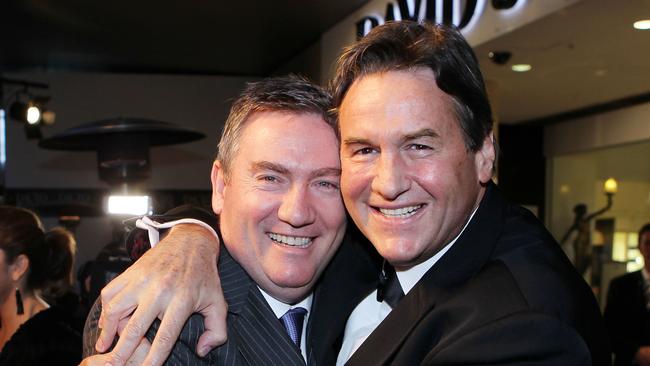
Jeff Browne was described by former Nine Network chief executive David Gyngell as being “robust and talented” and “the best deal closer in the business”.
Those who have been in skirmishes with Browne say the word “robust” is an understatement.
Mark Korda, who replaced Eddie McGuire as president in April, is recognised as one of Australia’s best business talents. He joins an increasing number of leading business people prepared to take on the presidency of Australian Rules football clubs. Rather than being a “robust” fighter, Browne-style, Korda in a battle is a very skilled tactician.
Jeff Browne spent about 20 years as a legal adviser to the AFL. He was no ordinary legal adviser. At the time, Graeme Samuel was masterminding the strategy to take the suburban Melbourne football competition into a national league.
Browne’s ability to “robustly” help bring some clubs into line was part of that extremely difficult task but it worked, culminating in the big TV contracts that Browne helped secure.
Then in 2006 (the year after Kerry Packer died), McGuire was suddenly promoted from being a Melbourne-based quizmaster and football show host to CEO of the Nine Network based in Sydney. He knew he needed help and called on his friend Jeff Browne to work alongside him at Nine.
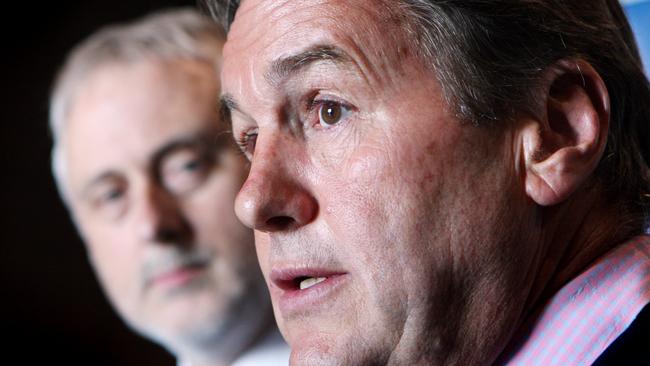
In the years after Packer’s death, Nine was a tough place. Longstanding Nine Sydneysiders did not welcome the intruders – especially from Melbourne – and set lots of “traps” for McGuire, who was inexperienced in such a hostile business environment. He often got caught. One of the early tasks set for McGuire and Browne was to retrench a string of people, which did not improve their popularity.
After a time it was clear to all that it was not going to work for anyone and Eddie McGuire returned to Melbourne. In normal circumstances the person he appointed to work alongside him would also have departed. But “robust” Browne was much more adept at handling the then Nine culture and he stayed.
In time a big part of Browne’s job became to do the big deals. He secured new Nine agreements with rugby league, cricket and WIN plus the purchase of WIN’s Adelaide and Perth operation.
Korda’s rise to be one of Australia’s most skilful receivers started in 2002 with the Ansett collapse. PricewaterhouseCoopers (now PwC) was in the box seat to be the Ansett administrator but Korda out-thought the giant accounting firm by doing a deal with the unions which represented staff creditors. Suddenly a shocked PricewaterhouseCoopers was out in the cold.
Korda and his partner Mark Mentha delivered for the Ansett staff who received close to 100 cents in the dollar. For a long time ex-Ansett staff would go out of their way to thank Korda and Mentha when they saw them.
After the Ansett deal Korda and Mentha never looked back. Eddie McGuire recognised Korda’s talents and played a big role in recruiting him to the Collingwood board.
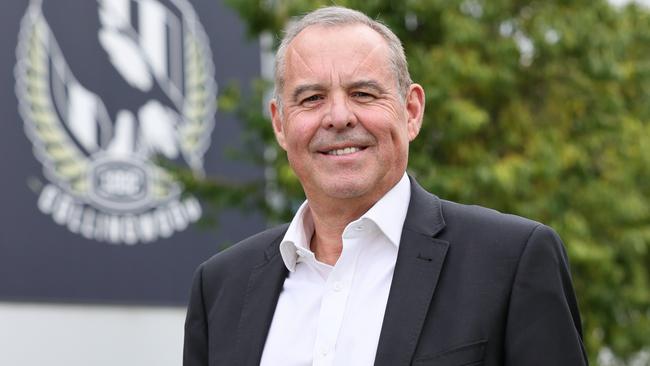
In Collingwood circles it is widely believed that the board of Collingwood was not unanimous in the initial vote to elect a president to replace McGuire. That knowledge may have played a role in Browne’s decision to challenge Korda.
But whatever the initial vote was, the board is now solidly behind Korda and has not been split by the Browne challenge.
They have already used strong words against Browne to show they will fight together.
Korda, possibly remembering his PricewaterhouseCoopers battle, will orchestrate the board fight with great skill. One of the unknowns in the looming battle will be how Korda uses the “Eddie card” – Browne’s friendship with Eddie McGuire – in the battle.
And, of course, one of the Collingwood board members is former Australia Post CEO Christine Holgate, who has had her own battle with the Australia Post chairman as well as the Prime Minister. Accordingly she’s no stranger to a skirmish.
Business people around the land will be watching with great interest to see how a Korda-style president appeals to the Collingwood faithful over a more populist Jeff Browne.
Top accountants are becoming the new recruiting field for AFL presidents.
Former PwC partner Paul Brasher became Essendon president last year and former PwC chief executive Luke Sayers is set to be president of Carlton later this year.
Last year both Collingwood and Essendon faced internal problems. McGuire appointed an outside group to investigate Collingwood’s racial issues. Brasher took an entirely different approach and did the job himself. Personally he interviewed some 40 players, officials and others in the club to determined what had caused five key players to leave Essendon at the end of 2020. Out of those exhausting interviews Brasher helped form and implement a strategy for 2021. The Brasher approach seems to have worked and, as Collingwood found, it is clearly superior to bringing in outsiders.
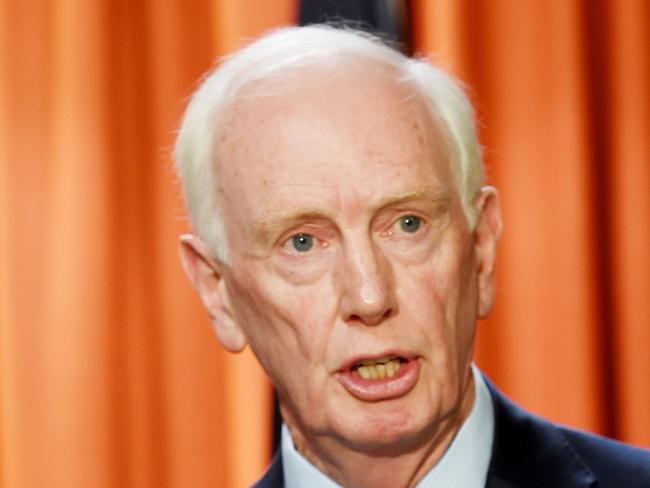
Brasher’s exhausting interviews were a reminder to all those considering becoming president of a football club that, while it is always a time-consuming task, the burden is enormous when something goes wrong. But that hasn’t stopped Craig Drummond, who will retire as CEO of Medibank later this month (where he has performed brilliantly), becoming Geelong president.
Meanwhile, if Korda wins the battle with Browne, there will be two ex PwC partners as presidents, and one who propelled his career by defeating PwC. The task is changing.




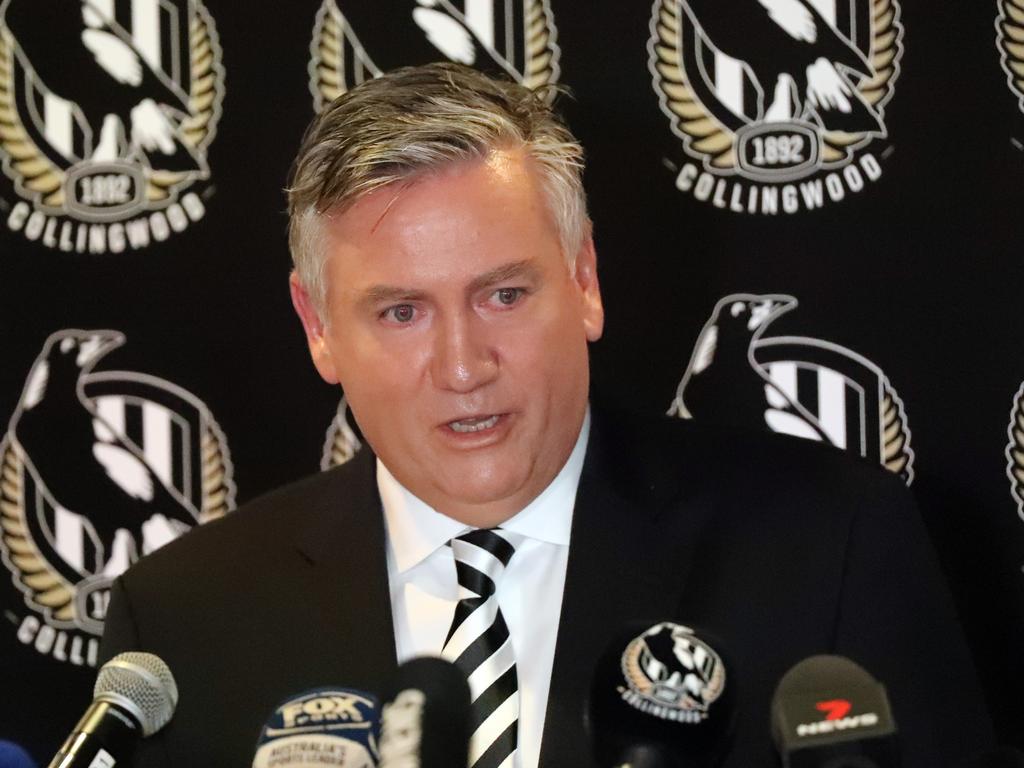


The looming battle between Jeff Browne and Mark Korda for the presidency of the Collingwood Football Club will be a classic tussle between two different ways of doing business.